DEPTOR is a stemness factor that regulates pluripotency of embryonic stem cells
- PMID: 25258312
- PMCID: PMC4231659
- DOI: 10.1074/jbc.M114.565838
DEPTOR is a stemness factor that regulates pluripotency of embryonic stem cells
Abstract
The mammalian target of rapamycin (mTOR) pathway regulates stem cell regeneration and differentiation in response to growth factors, nutrients, cellular energetics, and various extrinsic stressors. Inhibition of mTOR activity has been shown to enhance the regenerative potential of pluripotent stem cells. DEPTOR is the only known endogenous inhibitor of all known cellular mTOR functions. We show that DEPTOR plays a key role in maintaining stem cell pluripotency by limiting mTOR activity in undifferentiated embryonic stem cells (ESCs). DEPTOR levels dramatically decrease with differentiation of mouse ESCs, and knockdown of DEPTOR is sufficient to promote ESC differentiation. A strong decrease in DEPTOR expression is also observed during human ESCs differentiation. Furthermore, reduction in DEPTOR level during differentiation is accompanied by a corresponding increase in mTOR complex 1 activity in mouse ESCs. Our data provide evidence that DEPTOR is a novel stemness factor that promotes pluripotency and self-renewal in ESCs by inhibiting mTOR signaling.
Keywords: Cell Differentiation; Cell Signaling; Embryonic Stem Cell; Mammalian Target of Rapamycin (mTOR); Neurogenesis.
© 2014 by The American Society for Biochemistry and Molecular Biology, Inc.
Figures
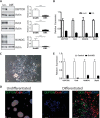
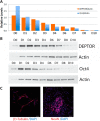
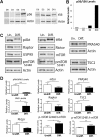
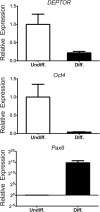

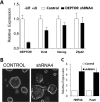
References
-
- Zhang J., Grindley J. C., Yin T., Jayasinghe S., He X. C., Ross J. T., Haug J. S., Rupp D., Porter-Westpfahl K. S., Wiedemann L. M., Wu H., Li L. (2006) PTEN maintains haematopoietic stem cells and acts in lineage choice and leukaemia prevention. Nature 441, 518–522 - PubMed
Publication types
MeSH terms
Substances
Grants and funding
LinkOut - more resources
Full Text Sources
Other Literature Sources
Molecular Biology Databases
Miscellaneous

